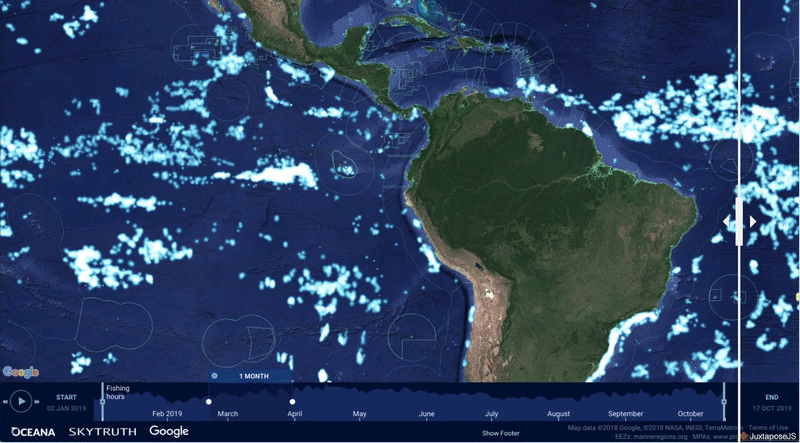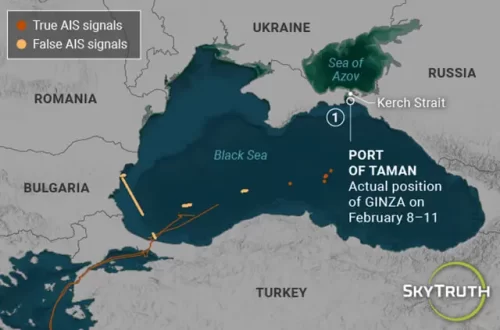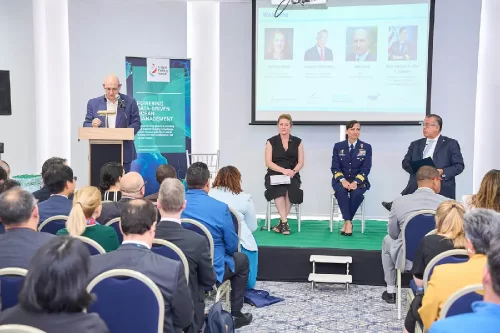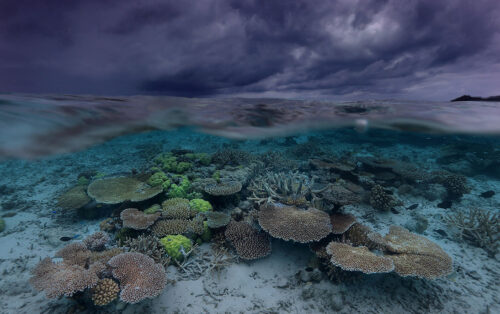The European Commission recently warned Panama for a second time that they must tackle IUU fishing, but no one policy, system or State can fix the problem on their own.
Illegal, Unreported and Unregulated (IUU) fishing threatens the sustainability of fish stocks, the income of fishers and the food security of communities around the world, costing the sector an estimated $23.5 billion every year. The European Union (EU) is one of the world’s largest import markets for fisheries products, and therefore has a responsibility to ensure that all seafood entering its borders is legal. To achieve this, the European Commission (The Commission) adopted the IUU Regulation in 2010. The Regulation requires third (non-EU) countries to prove that seafood caught by their fleet was done so in compliance with relevant national regulations, regional conservation and management measures and international policies.
To effectively implement this Regulation, The Commission frequently engage in extensive discussions with third countries to determine whether they are in full compliance. Where evidence shows that this is not the case, The Commission may start the ‘carding process.’ This is a formal process of dialogue to address issues that the third country may have (yellow card), which can result in successful implementation of the IUU Regulation (green card) or a ban on imports of fisheries products into the EU market originating from the third country (red card). Full details of the carding process can be found here.
Panama was issued a yellow card in November 2012 and a green card in October 2014. In December 2019, The Commission reissued the yellow card to Panama, citing concerns around Panama’s control over their distant water fleet, sanctions system for infringements, oversight of processing plants and implementation of the Food and Agriculture Organization of the United Nations Agreement on Port State Measures to Prevent, Deter and Eliminate Illegal, Unreported and Unregulated Fishing (FAO PSMA).
In response to these discussions, Panama has reaffirmed its commitment to legal, responsible and sustainable fishing operations. Panama has implemented agreements to facilitate information sharing between relevant institutions; increased the number of trained port inspectors; implemented an online system of issuing fishing vessel licences and committed to share vessel tracking data with Global Fishing Watch. By sharing their vessel tracking data with the world, Panama’s commitment to sustainability through transparency is clear. Moving forward in 2020, there must be a focus on effective implementation of the commitments that have been made and policies that have been adopted.

Panama is not the only State facing these challenges. As of January 2020, The Commission has given out 25 yellow cards, six of which resulted in trade sanctions and three of which remain in place currently. In addition to Panama, yellow cards remain in place for Ecuador, Kiribati, Liberia, Sierra Leone, St. Kitts and Nevis, Trinidad and Tobago and Vietnam. There is no doubt that the EU carding process is a powerful incentive which drives many States to take action against IUU fishing. However, targeting States that often have varied and complex challenges in addressing IUU fishing individually, the carding system alone cannot solve the global problem.
The carding system itself has not avoided scrutiny and nor have actions of the EU distant water fleet. Despite calls from NGOs, industry organizations and third countries, carding decisions are made by the European Commission behind closed doors. In addition, critics often cite that efforts appear to focus the majority of their efforts on developing States, whilst ignoring potential infringements by developed States. Although initiatives such as WhoFishesFar disclose information on public fishing operations by EU-flagged vessels in third country waters, private access agreements with EU operators have been granted in contravention of EU law and continue to be agreed upon without oversight. Transparency around these decision making processes is needed to level the playing field and ensure IUU fishers cannot profit.
Stakeholders must work together to ensure effective accountability for fishing fleets, oversight of supply chains, implementation of existing policies and strong sanctions for infringements. Global Fishing Watch remains dedicated to supporting Panama and other States in this regard. By completing the following steps, States will tackle IUU fishing in their fleets and help to improve vessel safety and working conditions. When States share necessary information and make transparency the global norm, those looking to fish illegally and exploit their crew will be easier to identify, sanction and stop:
- Allocate all vessels a unique identification number and vessels leaving national waters a free International Maritime Organization Ship Identification Number (IMO Number) as a condition of registration. Publicly share vessel registries and submit all relevant data into the FAO Global Record of Fishing Vessels, Refrigerated Transport Vessels and Supply Vessels.
- Track all vessels using Vessel Monitoring Systems, Automatic Identification Systems or any other viable tracking system. Make vessel tracking data publicly available by incorporating them into Global Fishing Watch.
- Fully monitor transshipment at-sea and follow up on all unauthorised events. If this is not possible, ban transshipment at-sea.
- Stop foreign-flagged vessels landing illegal catch in domestic ports by implementing the PSMA. Follow the FAO information sharing process under the PSMA, ensuring that national contact points and designated ports are communicated to the FAO.
Some fishing vessel operators unethically increase profit margins by violating national and international laws that protect natural resources and human rights, while hiding these crimes at sea. By shining a light on commercial fishing operations, we can ensure that fish being imported into global markets is legal, management of fisheries is sustainable, crew and observers are safe and the ocean is healthy, productive and resilient.


